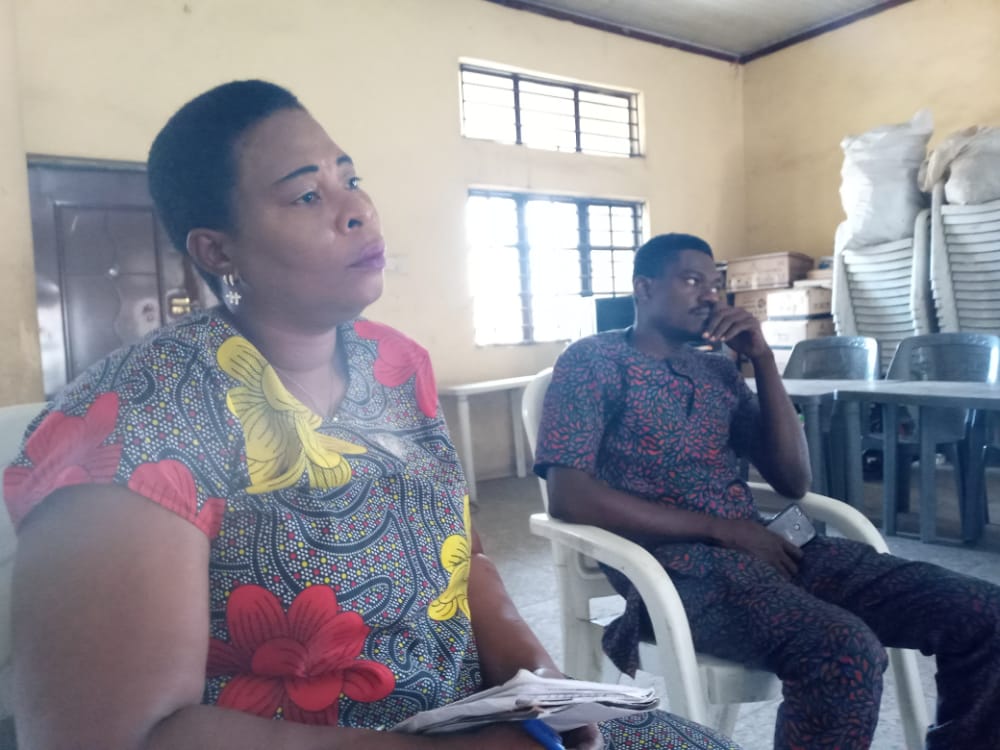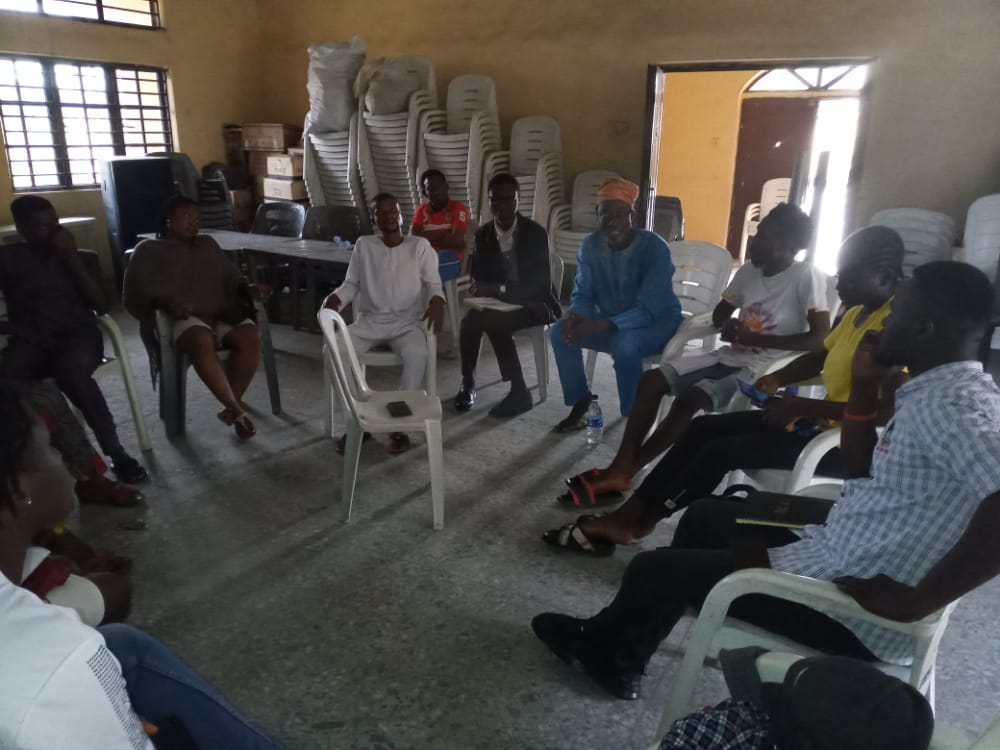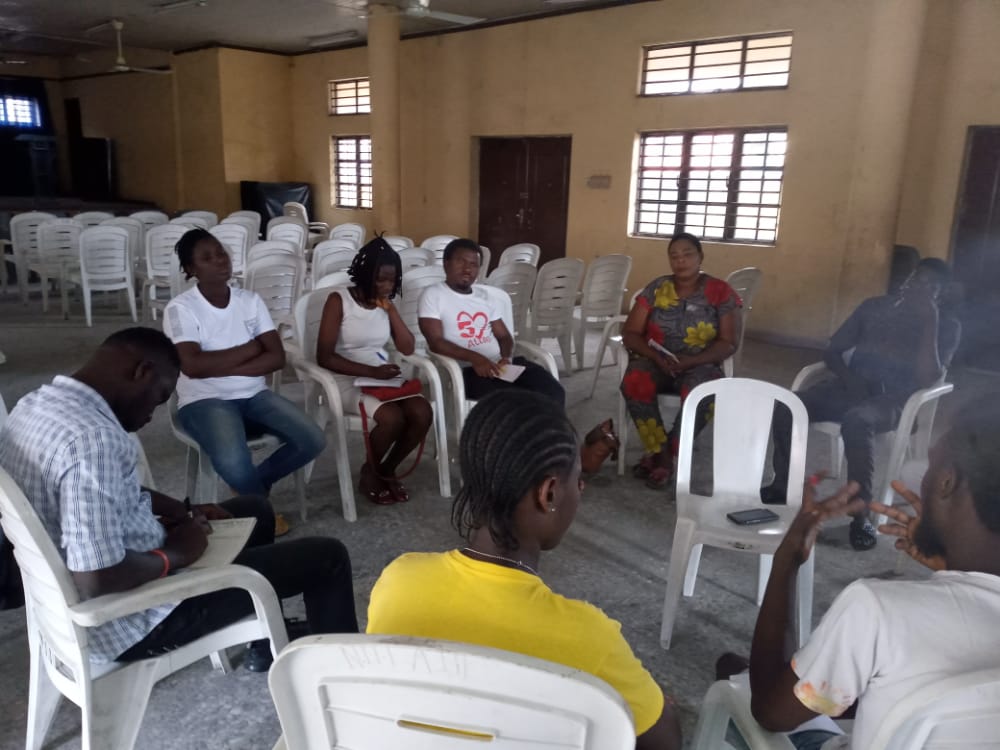MSA-AJEGUNLE HOLDS DISCUSSION ON “ROLE OF WOMEN IN THE REVOLUTION”
By MSA Reporter
The Ajegunle branch of the Movement for a Socialist Alternative (MSA) held a roundtable to discuss issues around Women’s Oppression; Women’s radicalization, and Revolution. It was held on the evening of Friday, 21st August, in the NUT Building at Ajegunle.

The participants, who are of the Ajegunle community, were members of the MSA, working-class women, young women, and young people attracted to the ideas of the MSA. The configuration of the attendance left its excellent mark on discussions.
Participant took turns to draw light on the differences in the coloration of women’s oppression from one country to another, and how unchallenged values place women under domination.
Bestman Michael, a member of the MSA, led the discussion. Bestman noted that the meeting was coinciding with a worrisome rise in cases of sexual violence in Nigeria, a tragedy that has also emboldened civil society movements and activists to interrogate and take actions against Women Oppression. He noted that a socialist’s appraisal of the Oppression of Women will save the movement from sectarianism, and unite people in the struggle to remove the material basis that is at the root of the domination of women and their oppression in society.

The roundtable had participants from the Ajegunle’s branch of the Teachers’ Union (NUT). Comrade Anita, who’s also an executive member of the union’s branch in Ajegunle intervened in discussions. She narrated the experiences of working women, who are no less oppressed despite their economic contributions to their homes or society. She also noted that some textbooks and education material employed for teaching are capable of entrenching from the cradle the principles of the superiority of a gender.
Kemi Bakare, a young Poet famous for her progressive works, used her submission to show how the ground is shifting beneath the feet of the traditional roles society assigns the genders. She noted that the uncertainty of holding jobs is fast shifting the traditional roles that most social studies textbooks ascribe to the male gender as providers of the family needs or head of the family. “This is even creating confusion for children who see their mothers playing the traditional roles of male providers, and the unemployed father taking over the domestic chores in the house to keep the family functioning,” Kemi said. Her submission, of course, was not to argue for an opposite shift to the so-called traditional roles of the gender, but to show that partnership of both gender is naturally being dictated by the equal roles the genders play in capitalist production.
The cultural basis of Women’s Oppression in the country was pointed out during discussions. Comrades noted the influence cultural practices have on the creation of artificial superiority between the female and the male genders. While some at the meeting suggested radical reorientation to stem the tide of domination, some others emphasized the struggle to remove the material poverty and backwardness that have sustained reactionary beliefs in the country. It was noted that culture itself is a fickle entity in society and not permanent.

Comrade Dagga Tolar, the Spokesperson of the MSA and the Chairman of NUT Ajeromi/Ifelodun Branch, a branch that covers the Ajegunle community, spoke from this perspective. He pointed at some of the so-called traditional duties of women in our present society, like maternal dedication to post-birth issues, which contributes to the economic dependence of women because employers hardly pay, adequately, for maternal leaves, or still few of them employ pregnant women. “If there are state-owned day-care services that are affordable to nursing families, some of the subjugating hardship they face can be removed at the bottom,” Dagga said.
Dagga observed that it is not historically correct to believe women have always been “behind men” as present culturalists want us to believe. “For example, there was a time in human history when the idea of God was feministic, and the history of Ancient Egyptian civilization spelled that out,” Dagga continues, “and only the way of struggle can we take to remove the present oppression of women, which capitalism has retained from the feudal past of human beings.”
The roundtable was part of the intervention of the Movement for a Socialist Alternative (MSA) in the struggle for the emancipation of Women. As progressive as the present steps are that are being taken to “#EndRape” or other forms of women oppression, there are sectarian principles encouraged by the leaders of these movements and widespread misunderstanding of the socio-economic basis for these oppressions, the MSA is launching out to reach genuine forces in the trade movement and civil societies and activists to put women oppression in the right, socialist perspective and build a force capable of fighting it and other instances of capitalist oppression.
The Roundtable was so gripping in its tone that comrades insisted a larger meeting be organized to give a clearer perspective to this and other socio-political issues. The Ajegunle Branch in a couple of weeks shall be organizing a larger meeting of socialists, trade union activists, young women, and community activists to further the MSA campaign against Oppression of Women in society.
